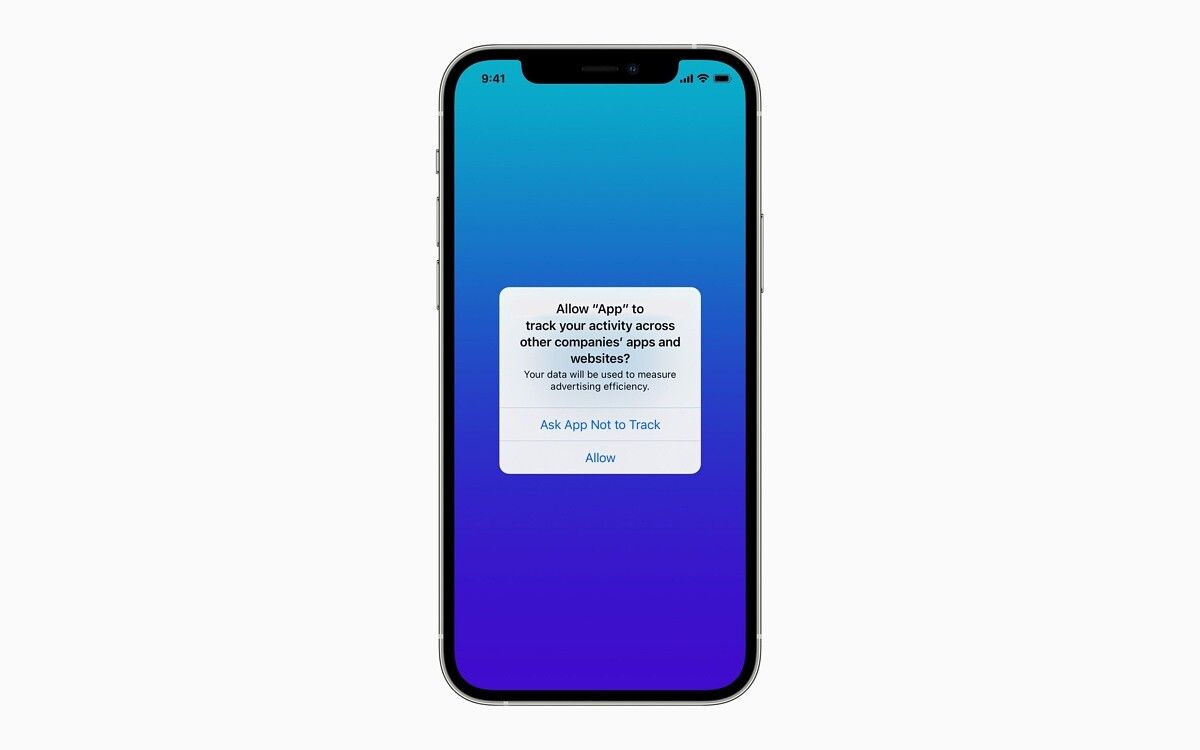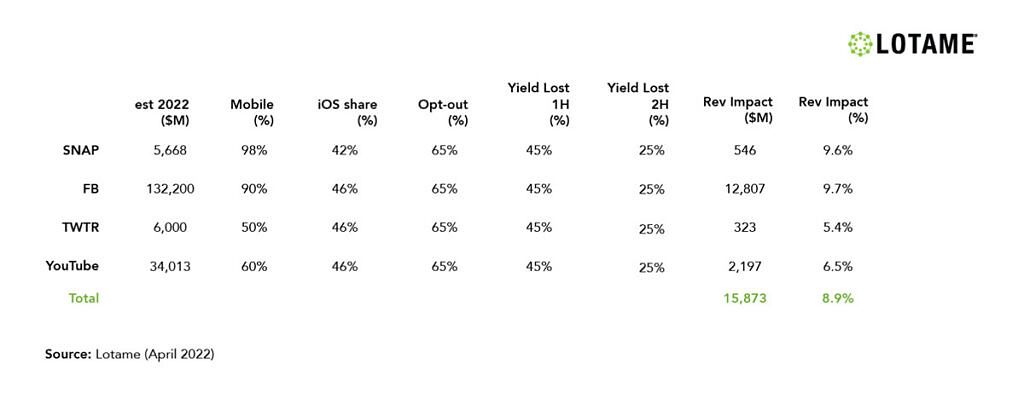Smartphones are slowly taking over our lives -- there's no denying that. For the past few years, more and more features have been surfacing. This makes us depend on our phones and replace other analog items in the process. As a result, these screens are becoming the focal point of our lives, where we store all of our private and sensitive data. With this increasing reliance, users become subject to heavier surveillance and tracking by snoopy apps. To help combat that, Apple released a solution for this prevalent problem last year. The company introduced the App Tracking Transparency feature in iOS 14.5 as a shield that stops developers from tracking users across websites and other apps. By rejecting tracking, it becomes harder to build profiles on users and pinpoint their interests for tailored advertising purposes. Unsurprisingly, this app tracking crackdown has been costing big corporations -- including Facebook and YouTube -- billions.
As per a Lotame report, Apple's App Tracking Transparency feature could cost big corporations almost $16 billion in 2022. These include companies that heavily rely on tailored advertising -- such as Snap, Facebook, Twitter, and YouTube. Facebook is expected to take the biggest hit, with an estimation of $12.8 billion loss in revenue. That is followed by YouTube's $2.1 billion estimation. Mike Woosley -- Chief Operating Officer at Lotame -- states:
The effects of these changes on these companies are hard to isolate because all four players are still growing extremely strongly, still taking share from the last bastions of traditional media and gaining share in digital media as privacy regulations make it harder and harder for independent publishers and technologies to execute. To add to the complexity, the pandemic has introduced volatile and unpredictable gyrations in the pacing of media spend.
To ensure that developers don't tempt users into allowing app tracking, Apple's App Store guidelines ban devs from offering users perks or rewards for enabling the feature. Additionally, iOS offers a toggle that stops apps from prompting you to enable app tracking altogether. In the meantime, companies like Facebook have been working on new ways to provide tailored ads -- without needing to depend on tracking across other apps and websites.
Do you allow developers to track you across other apps and websites to surface more relevant ads? Why or why not? Let us know in the comments section below.
Source: Lotame
Via: 9to5Mac


